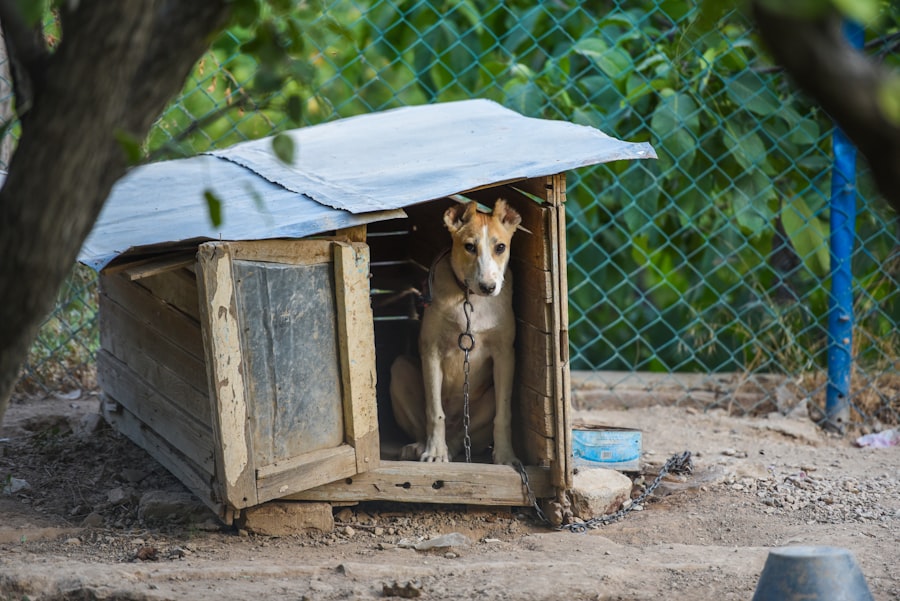The Nova Scotia Duck Tolling Retriever, also known as the “Toller,” is a medium-sized breed that originated in the early 19th century in the Little River District of Yarmouth County, Nova Scotia, Canada. The breed was developed to lure and retrieve waterfowl, hence the name “tolling,” which refers to the dog’s ability to entice ducks within gunshot range. The Toller is believed to be a mix of various breeds, including the Chesapeake Bay Retriever, Golden Retriever, and possibly some spaniel and setter breeds. The breed’s exact origins are somewhat mysterious, but it is widely accepted that the Toller was developed by hunters in the region who wanted a versatile and efficient hunting companion.
The breed was officially recognized by the Canadian Kennel Club in 1945 and by the American Kennel Club in 2003. Today, the Nova Scotia Duck Tolling Retriever is known for its intelligence, agility, and playful nature. They are highly skilled in retrieving waterfowl and are also popular as family pets due to their friendly and affectionate demeanor. The Toller’s history as a hunting dog has shaped its characteristics, making it an excellent choice for active individuals and families who enjoy outdoor activities such as hiking, swimming, and hunting.
The breed’s history is rich and fascinating, and it is important for prospective Toller owners to understand the origins of the breed in order to appreciate its unique qualities and characteristics. The Toller’s history as a working dog has influenced its temperament and behavior, making it essential for owners to provide proper training, socialization, and physical activity to ensure a happy and well-adjusted pet.
Table of Contents
- 1 What to Look for in a Reputable Breeder
- 2 The Importance of Health Testing in Breeding Programs
- 3 Training and Socialization Tips for Nova Scotia Duck Tolling Retrievers
- 4 The Best Environment for a Nova Scotia Duck Tolling Retriever
- 5 Finding a Nova Scotia Duck Tolling Retriever Breeder in New Jersey
- 6 The Responsibilities of Owning a Nova Scotia Duck Tolling Retriever
- 7 FAQs
- 7.1 What is a Nova Scotia Duck Tolling Retriever?
- 7.2 What should I look for in a Nova Scotia Duck Tolling Retriever breeder in NJ?
- 7.3 What health issues are common in Nova Scotia Duck Tolling Retrievers?
- 7.4 What is the average lifespan of a Nova Scotia Duck Tolling Retriever?
- 7.5 Are Nova Scotia Duck Tolling Retrievers good family pets?
Key Takeaways
- The Nova Scotia Duck Tolling Retriever originated in the early 19th century in Nova Scotia, Canada, where they were bred to lure and retrieve waterfowl.
- When looking for a reputable breeder, it’s important to ask for health clearances, visit the facility, and meet the parent dogs to ensure they are well-cared for and have good temperaments.
- Health testing is crucial in breeding programs to reduce the risk of genetic diseases and ensure the overall health and well-being of the breed.
- Training and socialization are key for Nova Scotia Duck Tolling Retrievers to help them become well-behaved and well-adjusted companions.
- The best environment for a Nova Scotia Duck Tolling Retriever is one with plenty of space to run and play, as well as opportunities for mental stimulation and social interaction.
- When looking for a breeder in New Jersey, it’s important to do thorough research, ask for references, and visit the facility to ensure the breeder meets high standards of care and ethics.
- Owning a Nova Scotia Duck Tolling Retriever comes with the responsibility of providing proper care, training, exercise, and socialization, as well as meeting their grooming and healthcare needs.
What to Look for in a Reputable Breeder
When looking for a reputable Nova Scotia Duck Tolling Retriever breeder, there are several key factors to consider. A responsible breeder will prioritize the health and well-being of their dogs and will be dedicated to preserving and improving the breed. It is essential to do thorough research and ask the breeder plenty of questions to ensure that they meet the following criteria:
First and foremost, a reputable breeder will be knowledgeable about the breed and will be able to provide information about the Toller’s history, characteristics, and care requirements. They will be transparent about their breeding practices and will be able to provide documentation of health testing and certifications for their breeding dogs. Additionally, a responsible breeder will prioritize the socialization and proper care of their puppies, ensuring that they are well-adjusted and have positive experiences during their early development.
It is also important to visit the breeder’s facilities in person to assess the living conditions of the dogs and puppies. A reputable breeder will maintain clean and safe living environments for their dogs and will be open to allowing potential buyers to meet the parent dogs and observe their behavior. They will also be willing to provide references from previous buyers and will offer ongoing support and guidance for new puppy owners.
The Importance of Health Testing in Breeding Programs
Health testing is a crucial aspect of responsible breeding programs for Nova Scotia Duck Tolling Retrievers. The Toller is generally a healthy breed, but like all dogs, they are susceptible to certain genetic health conditions that can be passed down through breeding. Health testing helps to identify potential health issues in breeding dogs, allowing breeders to make informed decisions about which dogs to pair for mating in order to minimize the risk of passing on genetic diseases to their offspring.
Some of the most common health concerns in Nova Scotia Duck Tolling Retrievers include hip dysplasia, progressive retinal atrophy (PRA), and autoimmune thyroiditis. Health testing for these conditions typically involves obtaining certifications from organizations such as the Orthopedic Foundation for Animals (OFA) or the Canine Eye Registration Foundation (CERF). These certifications indicate that a dog has been screened for specific health conditions and has been found to be free of any hereditary diseases.
In addition to genetic health testing, responsible breeders will also ensure that their breeding dogs receive regular veterinary care, including vaccinations, parasite control, and overall wellness exams. They will prioritize the health and well-being of their dogs and will be committed to producing healthy puppies with sound temperaments. Prospective Toller owners should always inquire about health testing and certifications when considering a breeder, as this is an important indicator of a breeder’s dedication to producing healthy and genetically sound puppies.
Training and socialization are essential aspects of raising a well-behaved and well-adjusted Nova Scotia Duck Tolling Retriever. Tollers are intelligent and eager to please, but they can also be independent and energetic, so it is important to start training early and be consistent with positive reinforcement techniques. Here are some tips for training and socializing your Toller:
– Start training early: Begin training your Toller as soon as you bring them home. Use positive reinforcement techniques such as treats, praise, and play to encourage good behavior. Consistency is key, so establish clear rules and boundaries from the start.
– Socialize your Toller: Expose your Toller to a variety of people, animals, environments, and experiences from a young age. This will help them develop confidence and good manners in different situations. Take your Toller on regular outings to meet new people and other dogs, and expose them to different sights, sounds, and smells.
– Provide mental stimulation: Tollers are intelligent dogs that thrive on mental stimulation. Engage them in interactive games, puzzle toys, and training exercises to keep their minds sharp and prevent boredom.
– Use positive reinforcement: Positive reinforcement training methods such as clicker training or reward-based training are highly effective with Tollers. Use treats, praise, and play to motivate your Toller and reinforce good behavior.
– Be patient and consistent: Training a Toller requires patience, consistency, and positive reinforcement. Avoid harsh or punitive training methods, as this can lead to fear or aggression in sensitive breeds like Tollers.
By providing early training and socialization, you can help your Toller develop into a well-mannered and well-adjusted companion that is a joy to live with.
The Best Environment for a Nova Scotia Duck Tolling Retriever
Nova Scotia Duck Tolling Retrievers thrive in environments that allow them plenty of opportunities for exercise, mental stimulation, and social interaction. They are active and energetic dogs that require regular physical activity to keep them happy and healthy. Here are some key considerations for creating the best environment for a Toller:
– Space: Tollers do best in homes with access to a securely fenced yard where they can run and play safely. They are not well-suited for apartment living unless their exercise needs can be met through regular walks, hikes, or other outdoor activities.
– Exercise: Tollers are high-energy dogs that require plenty of exercise to prevent boredom and destructive behaviors. They excel in activities such as agility, flyball, dock diving, and retrieving games. Daily walks, runs, or hikes are also essential for meeting their exercise needs.
– Mental stimulation: In addition to physical exercise, Tollers need mental stimulation to keep their minds sharp. Engage them in interactive games, puzzle toys, training exercises, and other activities that challenge their intelligence.
– Social interaction: Tollers are social dogs that thrive on companionship with their human family members. They enjoy being included in family activities and should not be left alone for long periods of time.
– Training: Tollers benefit from early training and socialization to help them develop good manners and obedience skills. Positive reinforcement training methods are highly effective with this breed.
By providing ample opportunities for exercise, mental stimulation, social interaction, and positive training experiences, you can create an environment that allows your Toller to thrive and be a happy and well-adjusted member of your family.
Finding a Nova Scotia Duck Tolling Retriever Breeder in New Jersey

If you are looking for a Nova Scotia Duck Tolling Retriever breeder in New Jersey, it is important to do thorough research to find a reputable and responsible breeder who prioritizes the health and well-being of their dogs. Here are some tips for finding a Toller breeder in New Jersey:
– Research breeders online: Start by researching Toller breeders in New Jersey online. Look for breeders who have a strong reputation within the Toller community and who prioritize health testing, proper care of their dogs, and ongoing support for puppy buyers.
– Contact local Toller clubs: Reach out to local Toller clubs or breed organizations in New Jersey for recommendations on reputable breeders in the area. These organizations can provide valuable insights into breeders who adhere to ethical breeding practices.
– Visit breeder facilities: Once you have identified potential breeders, schedule visits to their facilities to meet the parent dogs, observe living conditions, and ask questions about their breeding practices. A reputable breeder will be open to allowing potential buyers to visit their facilities.
– Ask for references: Request references from previous puppy buyers who have purchased from the breeder you are considering. Speaking with other Toller owners can provide valuable insights into the breeder’s reputation and the quality of their puppies.
– Inquire about health testing: Always ask about health testing and certifications for the breeding dogs. A responsible breeder will be able to provide documentation of health testing for genetic conditions such as hip dysplasia, progressive retinal atrophy (PRA), autoimmune thyroiditis, and others.
By taking the time to research breeders thoroughly and ask plenty of questions about their breeding practices, you can find a reputable Toller breeder in New Jersey who prioritizes the health and well-being of their dogs and produces healthy, well-socialized puppies.
The Responsibilities of Owning a Nova Scotia Duck Tolling Retriever
Owning a Nova Scotia Duck Tolling Retriever comes with several important responsibilities that prospective owners should be prepared for. Tollers are active, intelligent, and social dogs that require plenty of attention, exercise, mental stimulation, and proper care to thrive as happy and well-adjusted companions. Here are some key responsibilities of owning a Toller:
– Exercise: Tollers are high-energy dogs that require regular exercise to prevent boredom and destructive behaviors. Daily walks, runs, hikes, or engaging in activities such as agility or retrieving games are essential for meeting their exercise needs.
– Mental stimulation: In addition to physical exercise, Tollers need mental stimulation to keep their minds sharp. Engage them in interactive games, puzzle toys, training exercises, and other activities that challenge their intelligence.
– Training: Early training and socialization are crucial for Tollers to develop good manners and obedience skills. Positive reinforcement training methods are highly effective with this breed.
– Social interaction: Tollers are social dogs that thrive on companionship with their human family members. They should not be left alone for long periods of time and benefit from being included in family activities.
– Grooming: Tollers have a dense double coat that requires regular brushing to prevent matting and reduce shedding. They may also require occasional bathing, nail trimming, ear cleaning, and dental care.
– Healthcare: Regular veterinary care is essential for maintaining your Toller’s health. This includes vaccinations, parasite control, wellness exams, dental care, and addressing any health concerns that may arise.
By understanding the responsibilities of owning a Toller and being prepared to meet their needs for exercise, mental stimulation, training, social interaction, grooming, and healthcare, you can provide a loving and fulfilling home for your Toller companion.
By understanding the responsibilities of owning a Toller and being prepared to meet their needs for exercise, mental stimulation, training, social interaction, grooming, and healthcare, you can provide a loving and fulfilling home for your Toller companion. Tollers are intelligent, energetic, and social dogs that thrive on being active and engaged. They require regular exercise to keep them physically and mentally healthy, as well as training to channel their intelligence and energy in positive ways. Social interaction with other dogs and people is also important for their well-being. Additionally, regular grooming and healthcare, including vaccinations, check-ups, and dental care, are essential for keeping your Toller healthy and happy. With the right care and attention, your Toller can be a wonderful and loyal companion for many years to come.
If you’re looking for a reputable Nova Scotia Duck Tolling Retriever breeder in New Jersey, you’ll want to ensure that you have the knowledge and resources to care for your new pup. Understanding the basics of animal breeding and care is essential. You might find this article on how to care for goslings helpful, as it provides valuable insights into the responsibilities and considerations involved in raising young animals. It’s important to be well-prepared and informed before bringing a new pet into your home.
FAQs
What is a Nova Scotia Duck Tolling Retriever?
The Nova Scotia Duck Tolling Retriever, also known as the Toller, is a medium-sized breed of gundog known for its distinctive red coat and playful nature. They were originally bred in the early 19th century in the Little River District of Nova Scotia, Canada, to lure and retrieve waterfowl.
What should I look for in a Nova Scotia Duck Tolling Retriever breeder in NJ?
When looking for a Nova Scotia Duck Tolling Retriever breeder in NJ, it’s important to find a reputable breeder who prioritizes the health and well-being of their dogs. Look for breeders who are registered with the American Kennel Club (AKC) and who can provide health clearances for the parents of the puppies.
What health issues are common in Nova Scotia Duck Tolling Retrievers?
Like all breeds, Nova Scotia Duck Tolling Retrievers are prone to certain health issues, including hip dysplasia, progressive retinal atrophy, and autoimmune thyroiditis. It’s important to work with a breeder who screens their breeding dogs for these and other potential health concerns.
What is the average lifespan of a Nova Scotia Duck Tolling Retriever?
The average lifespan of a Nova Scotia Duck Tolling Retriever is 12-14 years. With proper care, nutrition, and regular veterinary check-ups, Tollers can live long and healthy lives.
Are Nova Scotia Duck Tolling Retrievers good family pets?
Yes, Nova Scotia Duck Tolling Retrievers are known for their friendly and affectionate nature, making them great family pets. They are intelligent, energetic, and eager to please, but they do require regular exercise and mental stimulation.
Meet Walter, the feathered-friend fanatic of Florida! Nestled in the sunshine state, Walter struts through life with his feathered companions, clucking his way to happiness. With a coop that’s fancier than a five-star hotel, he’s the Don Juan of the chicken world. When he’s not teaching his hens to do the cha-cha, you’ll find him in a heated debate with his prized rooster, Sir Clucks-a-Lot. Walter’s poultry passion is no yolk; he’s the sunny-side-up guy you never knew you needed in your flock of friends!







